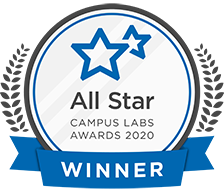Your student is beginning a new journey of independence at a major, urban research institution. College is very different from high school and students sometimes have a difficult time adjusting to all of the changes they are experiencing. Wayne State University understands how important it is for you as a parent or family member(s) to understand the changes your students are going through and how you can assist in a successful transition.
The Dean of Students Office has comprehensives resources on campus should your student become a little anxious or stressed. Here are some things you can do along the way.
1) Be supportive
Adjusting to College life and all of the new experiences your student will face, requires a supportive network of family and friends. Be as supportive as you have all the other times your student changed life stages.
This is a big step for both you and your student. When they experience successes as well as disappointments, both your student and the University community will want you there to encourage them, congratulate them, and help guide them back to their initial goal of completing their education.
When your student leaves for college, you should be his or her biggest cheerleader. College students need a confident smile to reassure them they are doing the right thing. Research shows that it is normal for students to change their majors along the way in school. Its perfectly normal. Be supportive of their decision for their life.
2) Be observant of time commitments.
The first year of college is very different than High School. Thus, the adjustment to increased homework and academic expectations can be a bit overwhelming. This means an adjustment to their schedulesless time for play! More time will need to be devoted to studying. Eight hours to study is the minimum amount of time to study for academic success. This doesn't mean theres no time for playit just means balancing priorities and staying focused on the goal!
3) Remember: Education First - Remind students to work only necessary hours.
Many times students that work off-campus sometimes lose focus on the primary goalwhich is their studies. Working on-campus offers students more flexibility and less stress since they are working on campus they do not have the added stress of making it to class on time. Working for off-campus employers could present a problem for students if their off-campus employer doesn't allow for a flexible schedule. Research indicates that students who work on campus are more likely to stay in school and complete their degrees. WSU offers many on-campus jobs for students through our Career Services Office. On-campus jobs generally range from 5-20 hours per week. Job listings are posted onhttp://careerservices.wayne.edu/.
4) Ask questions
Its okay to ask questions. Although your student is taking their first step of independence as a college student, they still can use parental wisdom. So ask them how their classes are going; how are things working out with their roommate (if applicable). Be ready to offer advice. Remember WSU has comprehensive support services so your student always has a resource on campus for issues.
5) Listen and Comfort
During the adjustment to college, your student may become frustrated. The easiest way to respond is to carefully listen and reassure them there is a light at the end of the tunnel. Sometimes, they just need to vent their frustrations so be a sounding board and comfort them.
6) Get to know faculty
Many first year students are hesitant to approach their professors and faculty in general. However, WSUs student centered method of teaching promotes interaction. Encourage your student to get to know a faculty member. Faculty makes great mentors.
7) Encourage Campus involvement
Research shows that campus involvement is one of several predictors of degree completion. College is more than classes and homework. A successful balance to student success includes connecting to other students. We highly suggest that students join at least one student organization in their first semester. Volunteerism and involvement on campus builds leadership skills they can transfer to their future career(s). Visit the www.doso.wayne.edu website for an exhaustive list of student organizations/engagement.
8) Talk about financial matters
Students are often solicited by credit card companies. Its always good to help keep your student on track by talking about their budget and financial obligations.
Exhale and Celebrate!
Congratulations! You have guided your student to a very important chapter in their life. Now, take a deep breath and be ready to journey with them in their first year experience as a college student.


